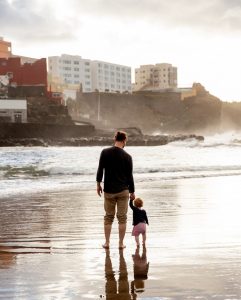 If you are contemplating a separation from your child’s other parent, it is important for you to have an understanding of the different types of child custody in New Jersey. In New Jersey, there is legal custody and physical custody. Most often people share joint legal custody in New Jersey, as the courts want to encourage both parents to be involved in their child’s life. There are some circumstances when one party is not fit to share in the legal custodial arrangement, and in those circumstances the parties do not share joint legal custody but instead one party is awarded sole, legal custody.
If you are contemplating a separation from your child’s other parent, it is important for you to have an understanding of the different types of child custody in New Jersey. In New Jersey, there is legal custody and physical custody. Most often people share joint legal custody in New Jersey, as the courts want to encourage both parents to be involved in their child’s life. There are some circumstances when one party is not fit to share in the legal custodial arrangement, and in those circumstances the parties do not share joint legal custody but instead one party is awarded sole, legal custody.
What are custody laws in New Jersey?
Sole legal custody is when only one parent makes all of the decisions for the child, and the other parent, who does not live with a child, does not have the ability to make any decisions.
More frequently, parents share joint legal custody. Under those circumstances, both parties have the right to share in joint legal decision-making concerning the children. We most often see joint decision-making in circumstances concerning the child’s education, health, welfare, religion, educational and major medical decisions.
People then establish a physical, custodial relationship, where they share physical custody of their child. Sometimes people share joint residential custody in New Jersey, sometimes parties share a more traditional residential custodial arrangement, where one party spends more time with the child than the other.
What is primary residential custody in New Jersey?
The residential parent is often referred to as the PPR, the parent of primary residence and the other parent is often referred to as the PAR, the parent of alternate residence. The PPR typically spends more physical time with the child and unless the parties agree otherwise or the court makes an independent determination, most often the child attends school in the same district where the PPR resides.
Daily day-to-day decisions relate to how the PPR’s household runs and what the child’s daily routine looks like. looks like with a focus on, ensuring that these day-to-day routines and decisions do not interfere with the rights of the other parent.
Is residence the same as custody?
Child custody can mean sole custody, joint legal custody, and shared legal and physical custody. Shared legal and physical custody primarily refers to the decision making but also the residential arrangement. In a shared schedule sometimes parents have a truly equal schedule; it could be a 50-50 schedule or an alternating week schedule. More traditional custodial arrangements involve joint legal custody, where one person acts as the parent of primary residential custody so that parent makes the day-to-day decisions and the other parent acts as the non-custodial parent, the parent of alternate residence, where that parent is not primarily living with the child on a day-to-day basis, but that parent still has the ability in concert with the parent of primary responsibility to make major decisions.
You may often hear the phrase residence order and wonder whether the residence order is for full custody. This likely refers to which parent is the parent of residential custody in New Jersey.
If you have questions about the residential custody in New Jersey and custody laws in New Jersey, it is important for you to understand the different types of custody in New Jersey and understand the rights a resident parent has in New Jersey.
Contact the legal experts at DeTorres & DeGeorge today for cutting edge legal advice and representation so that all of your questions and concerns may be answered as you navigate difficult circumstances with your child’s other parents.

 START LIVE CHAT
START LIVE CHAT









